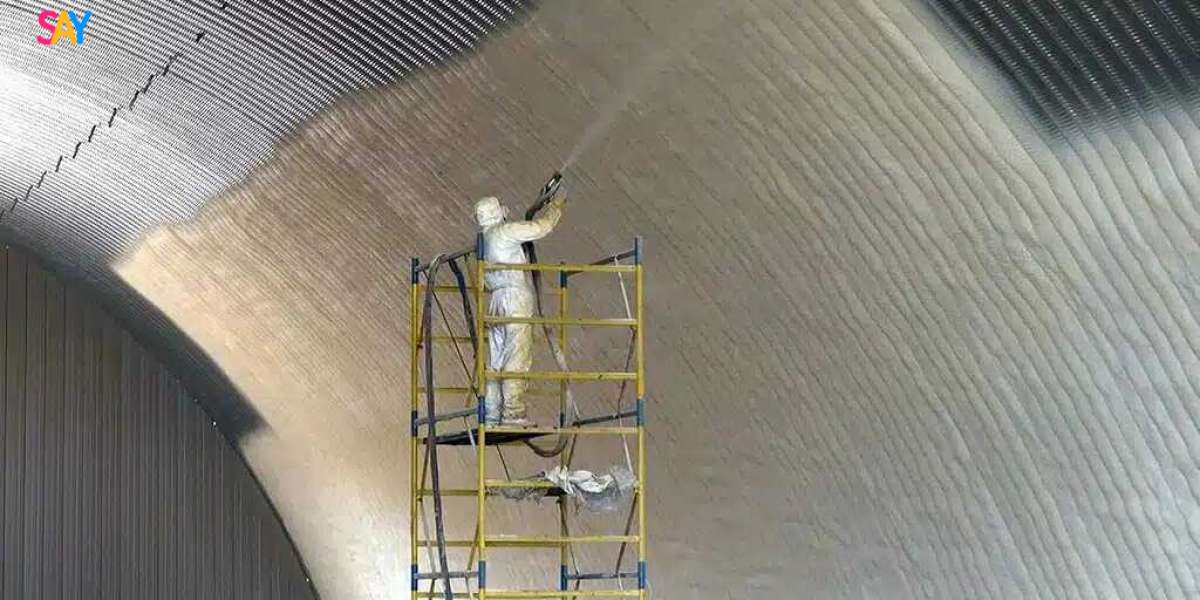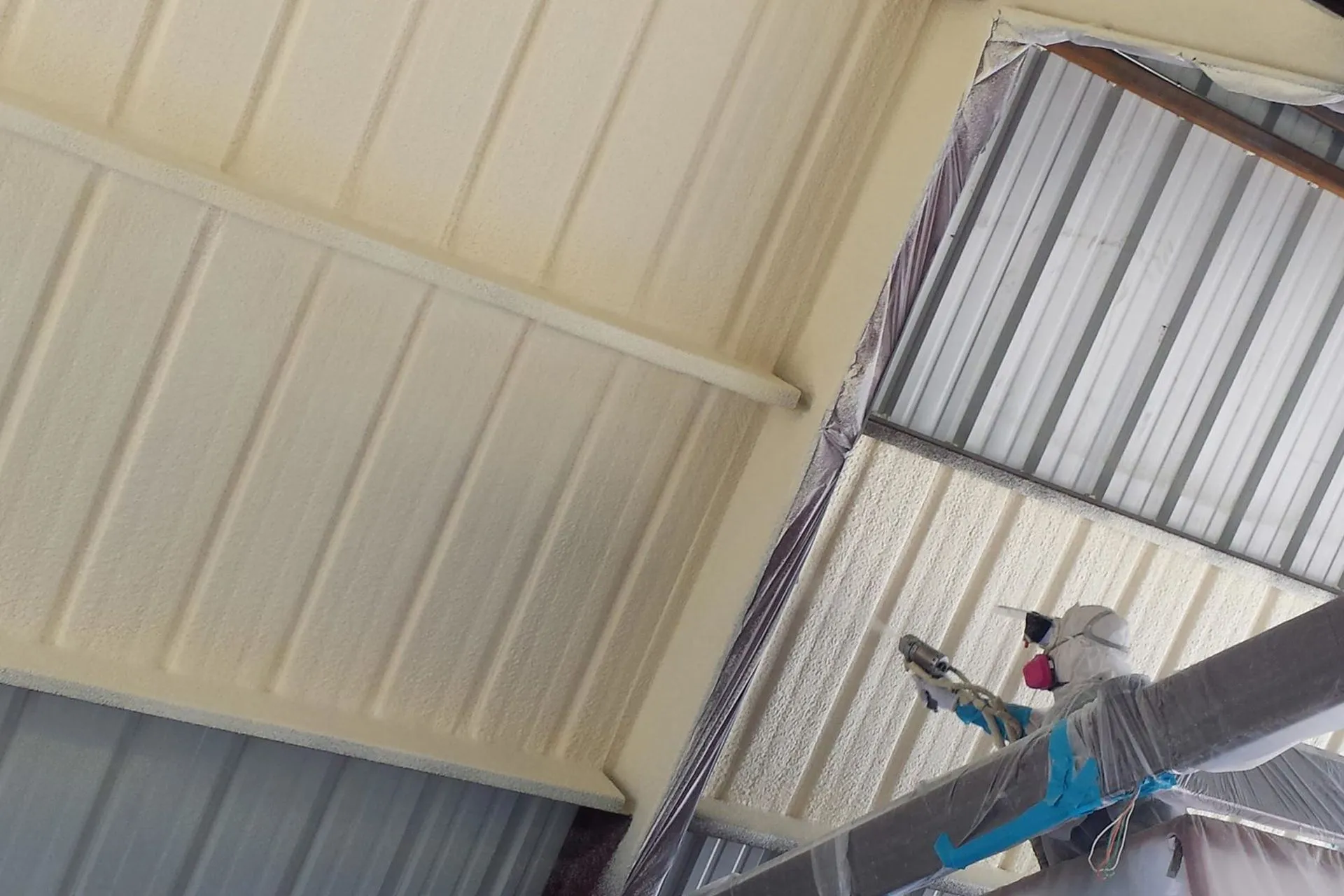The ROI (Return on Investment) of commercial insulation solutions, particularly closed-cell foam, is a major factor for businesses considering insulation upgrades in Raleigh's industrial spaces. This type of insulation offers both immediate and long-term financial benefits. The core advantages include energy savings, enhanced building longevity, and reduced maintenance costs. When considering the costs involved and the potential for improving energy efficiency, closed-cell foam insulation is often a wise investment for industrial property owners and managers.
This article will provide a detailed analysis of the ROI associated with commercial spray foam insulation in Raleigh, focusing on energy savings, property value, and maintenance reduction. By the end, you will have a clear understanding of the financial benefits of investing in this insulation type for your commercial or industrial space.
Types of Commercial Insulation for Industrial Spaces
When assessing the ROI of insulation options, it's essential to first understand the types of insulation commonly used in commercial buildings. The two main categories are open-cell and closed-cell foam. Each comes with its own set of advantages depending on the building's specific needs.
Closed-Cell vs. Open-Cell Foam Insulation
Insulation Type | R-Value (per inch) | Density | Moisture Resistance | Durability | Common Uses |
Closed-Cell Foam | 6.0-7.0 | 2.0-2.5 lb/ft³ | Excellent | High | Industrial, warehouses, commercial buildings |
Open-Cell Foam | 3.5-4.0 | 0.5-1.0 lb/ft³ | Poor | Moderate | Residential, interior walls, attics |
Benefits of Closed-Cell Foam Insulation
Closed-cell foam insulation is known for its superior performance in industrial applications. The benefits include:
- Higher R-Value: Offers higher thermal resistance per inch, leading to more effective insulation.
- Moisture Barrier: Prevents water infiltration, which is crucial in areas with high humidity or where water damage is a concern.
- Long-Term Durability: With proper installation, closed-cell foam maintains its effectiveness over the years.
These factors make closed-cell foam a compelling choice for industrial spaces in Raleigh, where the demand for energy-efficient solutions is high.
Economic Impact of Insulation on Industrial Spaces
The financial impact of installing commercial spray foam insulation in Raleigh can be measured in several ways. Two of the most significant factors are energy savings and maintenance cost reduction.
Energy Savings
One of the primary financial benefits of closed-cell spray foam is its ability to reduce energy consumption. In the often hot and humid climate of Raleigh, maintaining a comfortable indoor environment for employees and equipment can be expensive. By reducing the need for heating and cooling, foam insulation lowers energy costs significantly.
Potential Energy Savings from Spray Foam Insulation
Building Size | Annual Energy Savings (Estimate) | ROI Period (Years) |
Small (5,000 sq ft) | $1,500 - $3,000 | 3-5 |
Medium (20,000 sq ft) | $5,000 - $8,000 | 2-4 |
Large (50,000 sq ft) | $15,000 - $25,000 | 2-3 |
These estimates demonstrate the strong potential for savings in both smaller and larger industrial spaces, highlighting the role of spray foam insulation in reducing long-term operational costs.
Maintenance Cost Reduction
Proper insulation also plays a significant role in reducing maintenance costs by protecting the structure from moisture damage, mold, and other environmental factors. A well-insulated building experiences fewer issues with rust, corrosion, and general wear and tear, which results in lower repair and replacement costs over time.
Long-Term Maintenance Benefits
Type of Damage Prevented | Estimated Annual Maintenance Savings |
Moisture infiltration | $1,000 - $3,000 |
Mold growth | $500 - $2,000 |
Structural decay | $2,000 - $4,000 |
As the table above indicates, spray foam insulation helps mitigate these issues, ensuring that maintenance costs remain low throughout the lifespan of the building.
Things to Consider Before Making a Decision
Before proceeding with the installation of commercial spray foam insulation, there are several factors to consider. These considerations will help ensure that the investment aligns with your business needs and goals.
Initial Installation Costs
Closed-cell spray foam insulation typically has a higher initial cost compared to other insulation types. However, when weighed against the energy savings and reduced maintenance, the return on investment can justify the higher upfront expense.
Building Design and Climate
The design of your building and the climate in Raleigh play crucial roles in the effectiveness of spray foam insulation. Buildings with irregular shapes or areas that are hard to access may require more labor to install, affecting both cost and installation time. Similarly, areas with extreme temperature fluctuations will benefit more from the insulating properties of foam.
Regulatory and Compliance Issues
Before making a decision, ensure that the insulation material complies with local building codes and regulations. Raleigh's climate and building codes may influence the type of insulation best suited for your industrial space. Always consult with a professional to ensure compliance.
Common Questions
Is spray foam insulation suitable for all commercial buildings?
Closed-cell foam is ideal for industrial spaces, warehouses, and manufacturing facilities due to its high insulation performance and moisture resistance. It may not be the best option for areas where moisture control is less of a concern or where cost constraints are a priority.
How long does spray foam insulation last?
With proper installation, spray foam insulation can last 20-30 years, providing long-term benefits in energy savings and structural protection.
Can spray foam insulation improve indoor air quality?
Yes, closed-cell spray foam helps prevent the entry of pollutants, allergens, and moisture, contributing to better indoor air quality in industrial spaces.
How much does spray foam insulation cost to install?
The cost varies depending on the size of the building, complexity of installation, and the specific foam material used. Generally, the installation cost is between $1.50 and $3.00 per square foot.
Make the Right Decision
When considering commercial spray foam insulation for industrial spaces in Raleigh, it's essential to weigh the upfront costs against long-term savings. The ROI, when calculated through energy savings, reduced maintenance costs, and the increased longevity of the building, can be substantial. Always consider the specific needs of your space, including the building design, climate, and local regulations, before making your decision.
In summary, closed-cell spray foam insulation is a strong choice for industrial spaces looking to reduce operational costs, improve energy efficiency, and protect the integrity of the structure over time. Consider working with professionals who can assess your space and ensure proper installation to maximize the financial benefits.
Frequently Asked Questions
- What is the payback period for closed-cell spray foam insulation in industrial buildings?
The payback period varies by building size, energy usage, and installation costs. On average, Raleigh-based industrial facilities can expect a return on investment within 2 to 5 years, depending on how well the insulation reduces energy costs and limits maintenance expenses. - Does closed-cell foam insulation qualify for any local or federal incentives in Raleigh?
Yes. Depending on the project scope and energy efficiency improvements, your insulation upgrade may be eligible for tax incentives, rebates, or energy efficiency grants. It’s advisable to consult with a local energy consultant or contractor familiar with Raleigh’s current programs. - How does closed-cell foam handle extreme temperature swings common in North Carolina?
Closed-cell foam performs well in both hot and cold conditions due to its high R-value and air-sealing capabilities. It maintains consistent indoor temperatures, reduces HVAC strain, and handles Raleigh’s humid summers and cooler winters effectively. - Can spray foam be applied to existing industrial buildings, or is it only for new construction?
Spray foam insulation is highly adaptable and can be applied during retrofit projects as well as new construction. Existing industrial buildings benefit greatly from insulation upgrades, especially when energy loss or moisture problems are already present. - What maintenance or upkeep is required for spray foam insulation after installation?
Once installed, closed-cell spray foam requires little to no ongoing maintenance. Unlike other insulation types that may settle, degrade, or absorb moisture over time, spray foam remains stable and intact for decades when properly applied.





